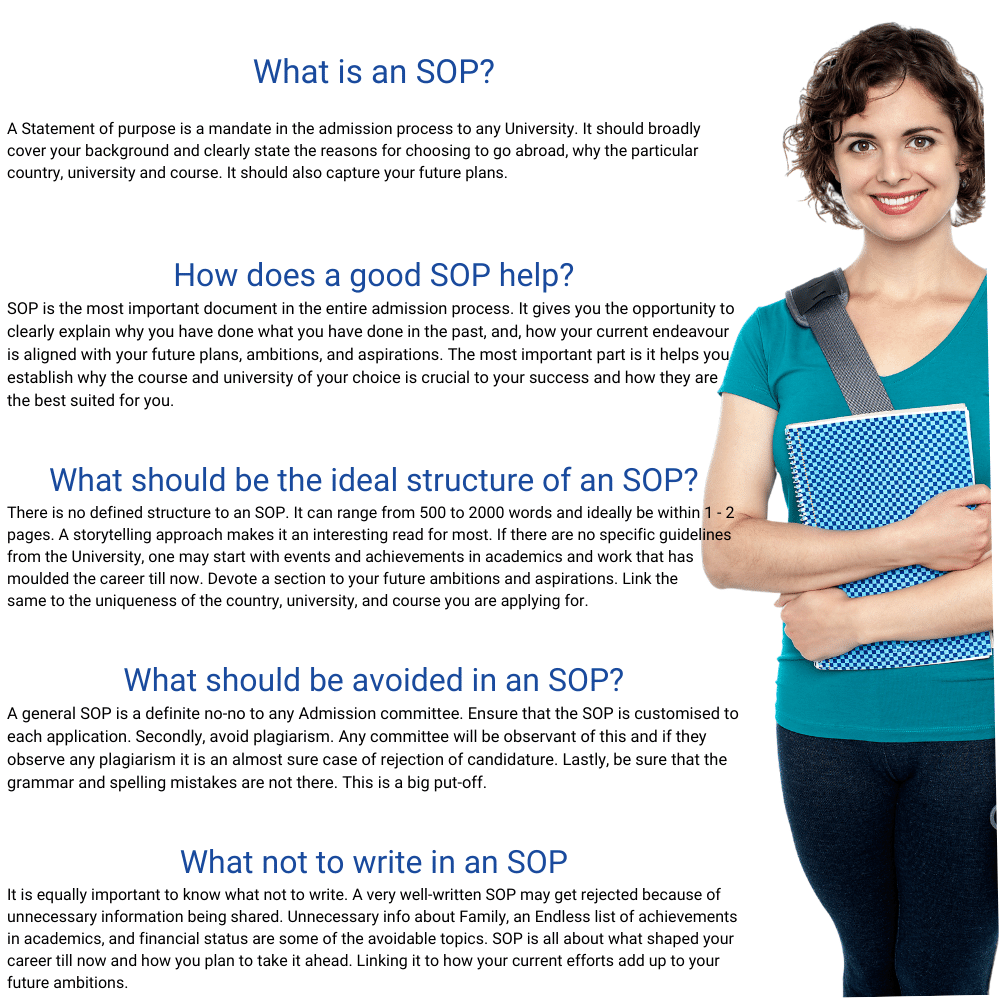Don't miss the chance to impress the
Admissions Committee!!
The Vital Role of SOP and LOR in Your Admission Process
According to Harvard, your Statement of Purpose (SOP) plays an integral role in your admission process. The admission committee meticulously evaluates the SOP, and submitting a general, non-customized version can significantly impact your chances. A generic SOP that isn't tailored to the specific college can be a major put-off and might even lead to the rejection of your application.
The SOP is the only part of your admission documentation that is entirely in your control, making it crucial to ensure it's well-written, thoroughly checked, and reviewed. A polished Statement of Purpose can greatly enhance your chances of acceptance by the university. Alongside the SOP, your Letter of Recommendation (LOR) or letter of rec also holds substantial weight in the admission process. An expertly crafted LOR from someone who knows your abilities can further strengthen your application.
Combining a tailored SOP with a compelling Letter of Recommendation significantly increases your chances of securing your spot in your desired program.
The Importance of a Well-Written SOP and Its Impact on Your Application
An SOP (Statement of Purpose) is one of the most critical factors in determining whether your application is selected or rejected by the college of your choice. Even the most impressive candidates can face rejection due to a poorly written SOP. Therefore, it's essential to get your SOP done right!
We emphasize that a well-crafted SOP should be concise, ideally not exceeding 1,000 words, while effectively conveying your ethos to the admissions committee. Additionally, a strong Letter of Recommendation (LOR) or letter of rec can further enhance your profile. However, an SOP tailored specifically for the college or university is crucial—one-size-fits-all is not an option.
Once you've made the payment, our team will contact you to obtain your CV and other necessary details. Our professional writers will carefully evaluate your CV and credentials and may ask additional questions or provide a questionnaire to gather more insights.
A draft SOP will be shared with you for review, and once you approve it, we'll finalize it for your application. Remember, an SOP paired with a powerful Letter of Recommendation can significantly boost your chances of acceptance!
All you need to know about SOP


Please Note: An SOP is to be written by the Student himself. The context of this paid service is to guide the student to get the SOP written by him correctly for the University where he is applying to pursue any course.
LOR - Letter of recommendation

A Letter of Recommendation (LOR) is typically provided by your school, college, or employer and plays a crucial role in your application process. A well-crafted LOR highlights your quantified achievements within your area of expertise and also showcases the contributions you've made beyond your direct responsibilities or influence.
In addition to your accomplishments, the letter of rec should capture the qualitative aspects of your personality, giving the admission committee insight into your character. It's essential that your Letter of Recommendation is recent—ideally, not more than six months old—and is written on official letterhead with a correspondence address, including contact details such as email and phone numbers.
Remember, universities often conduct background checks to verify the authenticity of the LOR, so ensuring it's genuine and up-to-date is vital for your application success.
